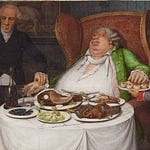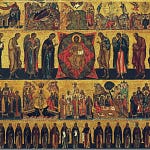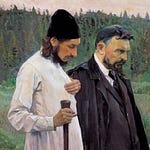It is that time of year again, and the internet is filling up with homilies and musings on the theme of Great Lent. It seems that every year the messages are the same: be kind, pray more, fast more - and, by the way, here are a few Lenten recipes to die for. On the one hand, the repetitions are understandable.
First, what more can be said that has not already been said over the centuries? Any modern writer who wishes to write about Lent inevitably has to take into account the very same writings of the very same great saints that every other writer has been reading and quoting for at least a millennium.
Of course, there are some occasional extravagant takes on the issue of Lent. One priest posted an opinion - not altogether unfounded - on a reputable web resource that goes roughly as follows: "Lent is not about food. If you want yogurt, eat your yogurt. If you want a beef cutlet, eat your beef cutlet. Just don't devour your neighbor." While I think I understand what he meant by this piece of advice, and much can be said about setting proper priorities when allocating our limited will-power resources, or about the futility of a diet without a proper spiritual disposition, it seems that in the modern world of bite-sized attention spans, this approach to fasting misses the very point of this ascetic discipline, and turns Great Lent into an amateur self-help anger-management exercise, while strangely equating the eating of meat with the "devouring" of neighbors - if I think I was a little less angry at my neighbor, does that mean I do not have to fast during Great Lent? - and essentially makes Lent meaningless. Indeed, I should not "devour" my neighbor any day of the year. So, if I practice that - however I may define it - I never have to give up yogurt or cutlets, right? And the saints, the ascetics, and the entire monastic tradition of the Church has been completely mistaken in its fasting efforts, right? For the most part, however, modern writers repeat sensible and pious tropes about forgiveness, humility, discipline, and patience, and do recommend that lay people fast - at least as much as they are able.
Listen to this episode with a 7-day free trial
Subscribe to Phroneo to listen to this post and get 7 days of free access to the full post archives.













